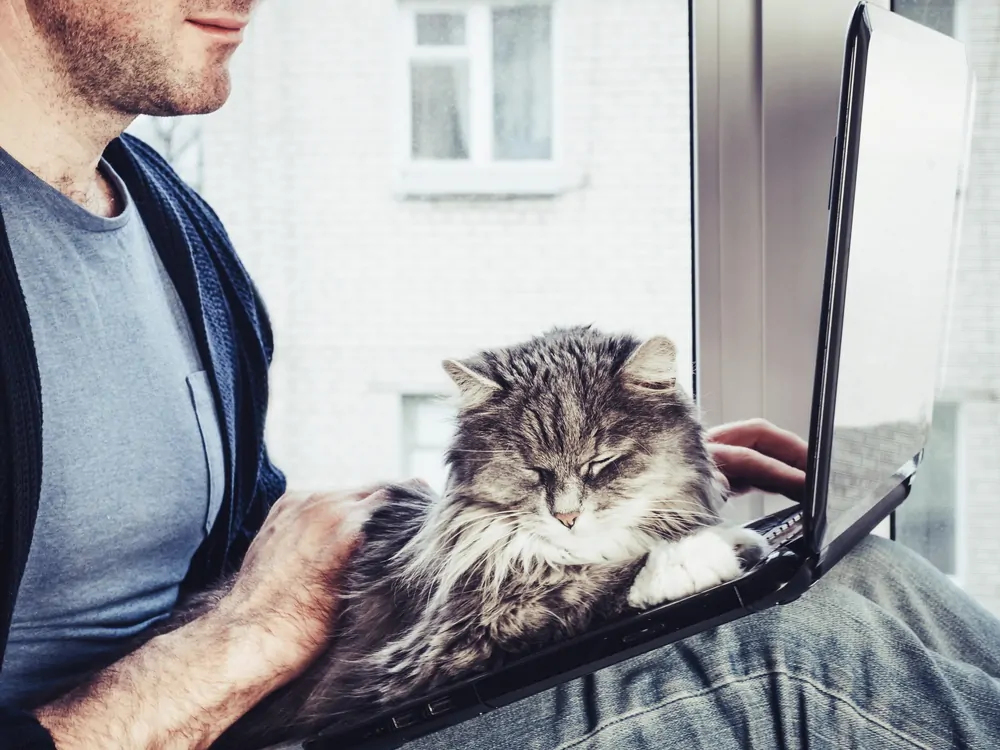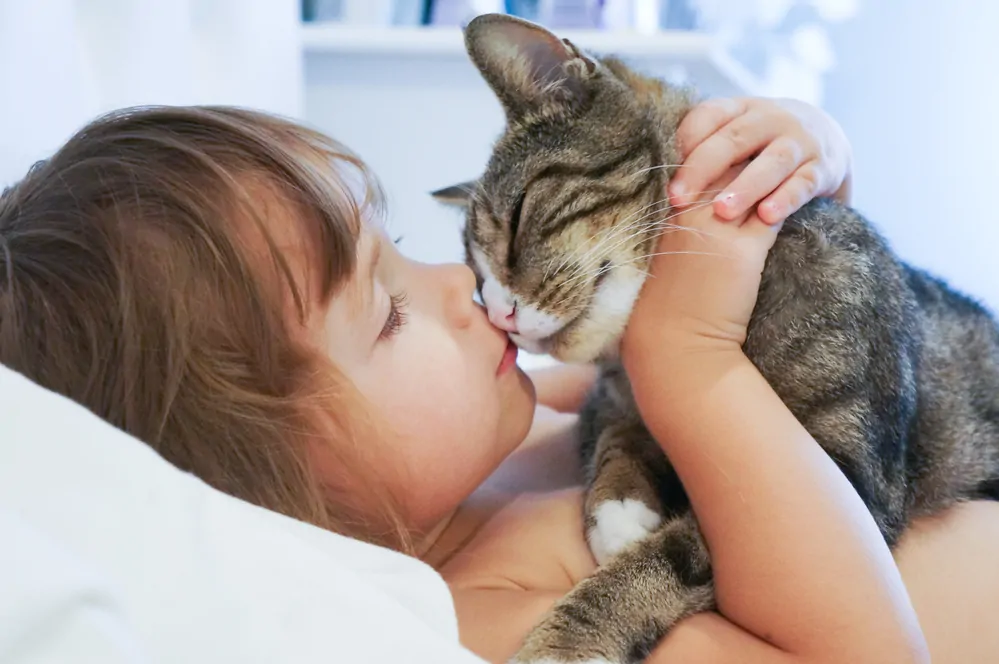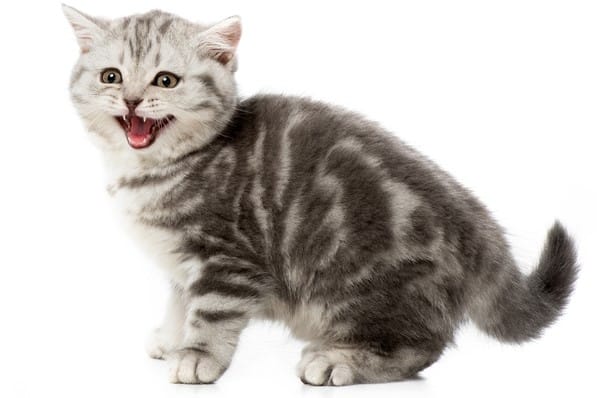We’ve all seen the adorable videos of cats insistent to sit right atop their owners’ keyboard.
But why do cats love computers so much? To me, cats are mysterious creatures. This is why I’ve spent so much time studying them and their behaviors – because they are fascinating to me.
I want nothing more than to be able to understand the mind of the misunderstood feline. And one question that has plagued me for so long is why are cats so drawn to computers?
Cats love computers because they want attention, be with their favorite person, they like things that have your scent on, and the laptops’ warm temperature is a cat’s perfect resting spot. Also, cats love to snuggle up in our laps, so when a laptop is there instead, it’s in the cats’ territory.
In most cases, your laptop sits directly on your lap (or at least right in front of your face) – and this is exactly where your cat wants to be.
As we all know, cats are not passive-aggressive. Rather, they will let us know exactly what they want.
A deeper explanation involves the process of classical conditioning, which we will discuss further as we move along in this article.
We’ll also discuss some methods that you can use to prevent your cat from crawling all over your laptop.
In addition, we’ll talk about some other common loves of cats, as well as why cats seek so much of our love.
Why Do Cats Love Computers? A Classical Conditioning Explanation:
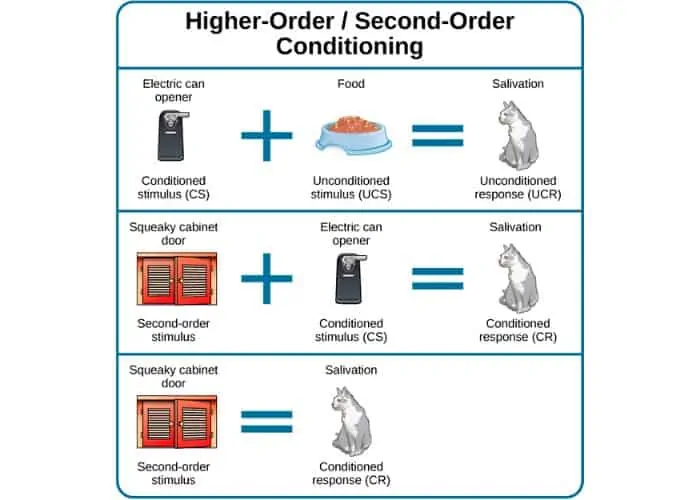
Classical Conditioning, sometimes referred to as Pavlovian Conditioning, was discovered by a Russian Physiologist named Ivan Pavlov.
It’s a simple theory suggesting that two stimuli can be linked together to produce a learned response in a human or an animal.
The most well-known case of Classical Conditioning is the example of Pavlov’s Dog.
In this example, Pavlov noticed that his dogs would salivate whenever food was placed in front of them.
From there, he theorized that if he could teach his dogs to associate a neutral stimulus with food, then he could elicit the same drooling response simply by introducing that stimulus. So he conducted an experiment to test his theory.
His experiment’s neutral stimulus was a Metronome (or a clicker). To test his theory, Pavlov would use the Metronome to create a clicking sound before each dog meal.
In return, the dogs would begin associating the clicking sound with food, producing the illicit drooling response.
Eventually, what Pavlov found was that he could introduce the clicker and produce a salivation response without even providing the dogs with food.
In other words, two stimuli were linked together to produce a learned response.
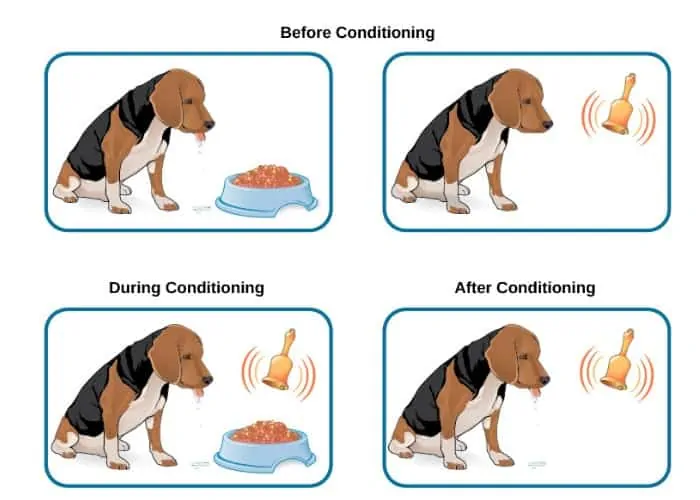
So the theory then broke down into three different stages:
- Stage 1: An Unconditioned Stimulus (Dog Food) produced an Unconditioned Response (Salivation)
- Stage 2: A Neutral Stimulus that produced no response (the Metronome) is introduced with, or associated with, the Unconditioned Stimulus (Dog Food).
- Stage 3: The newly Conditioned Stimulus (Metronome) now elicits a Conditioned Response (drooling) .
So what does this have to do with your cat laying on your laptop? Everything!
Without even realizing it, we classically condition our cats to lay on and walk all over our laptops, computers, and keyboards. How?
By giving our cats attention every time they walk across our lap or keyboard, we condition them to associate our computers with attention.
In other words, our cats know that if they walk across our laps, they will get our attention – and they certainly aren’t letting a laptop stand in their way.
Why Do Cats Crave So Much Attention?
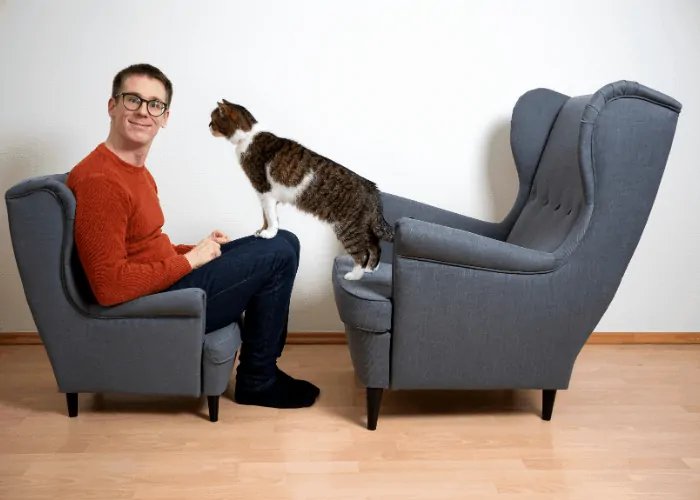
Cats have gained somewhat of a reputation for being stand-offish and even cold sometimes – but if you are a cat owner, you probably know this isn’t always the case.
While some cats have stand-offish personalities, others crave our love and affection. This is because they love you. Just as people need love and affection from their loved ones, so do cats.
And while cats do well on their own for most of the day, they do need your attention – and when they see you sitting down on your computer, that’s the perfect opportunity to steal your attention. After all, you can’t see the computer screen if your cat sits right in front of it!
How Can You Prevent This Behavior?
If your cat’s behavior is causing you to lose work or interrupting your progress, there are several things that you can do to prevent your cat from jumping on your computer:
- Move the cat to your lap – this is a simple way to give your cat the attention they need while still allowing you to have your workspace.
- Provide your cat with something else of yours to sleep on – Cats love things that smell like you. Unfortunately, your keyboard is one of those things. So to prevent them from jumping your keyboard, you can provide them with something else that smells like you to curl up in. Take a used towel or some of your laundry and place it beside you while working. This will give the cat somewhere comfortable to curl up, that isn’t you, but still reminds them of you.
- Provide your cat with a warm bed to sleep on – Your cat loves to be around you, and they love warm spaces. So while you are working, move their cat bed beside you and encourage them to lay on it every time they jump on the computer.
- Stop giving them attention – Every time your cat jumps on your computer and you give them attention, you are reinforcing that behavior. Remember, you are probably the one that created this behavior in the first place, so you’re also the only one that can break it. Stop giving them positive reinforcement when they jump on the computer. Either move them off, or divert your attention elsewhere until they move on their own. Once the cat has moved to a new space, THEN give them the attention they are looking for.
Conclusion:
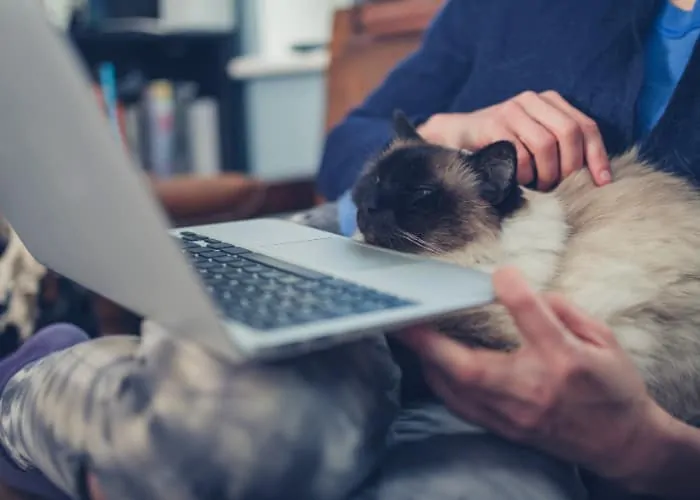
Try not to get too upset when your cat lies on your computer – they aren’t doing it to annoy you; they’re doing it to get closer to you.
Despite their reputation, cats need our love and affection just as much as we need theirs – and they simply aren’t going to let your laptop stop them from getting it.
If your cat’s attention-seeking behavior is causing you annoyance or stress, try some of the methods above to prevent laptop laying behavior, and use some classical conditioning techniques to encourage new behaviors in your cat.
Related Questions:
What else do cats love?
It’s suggested that you devote at least 20 minutes of your day to undistracted time with your cat.
This will help to reduce attention seeking behavior throughout the day, and will show your cat how much they are loved.
Here are some things you can do together with your cat:
- Groom them
- Cuddle with them
- Play with them
- Walk your kitty on a leash
- Give them some catnip toys
- Play with an interactive toy
- Take a nap together
- Play with some empty boxes and paper bags (monitored play only)
- Hide treats around the house
- Clicker train your cat and create your own classical conditioning outcomes!
Why do cats love my dirty laundry?
Cats love your dirty towels or laundry for one simple reason – it smells like you.
Cats have an extremely strong sense of smell – even better than most breeds of dog – and they use that sense of smell to send out messages.
And since cats don’t really know what to think about humans, they just assume we are some type of giant cat.
Therefore, they also assume that like them, we use scent to send out messages. When we leave our scent behind on our dirty laundry, the cat determines that we are leaving a message on that laundry, which is “this is a safe spot”.
When they sleep, cats in the wild are extremely vulnerable to predators. Therefore, they seek out a safe place to sleep.
And because your laundry smells like you and has been “deemed safe”, they feel comfortable in curling up and taking a nice nap in your dirty laundry. It may seem gross to you, but to your cat, this is their safe place.
